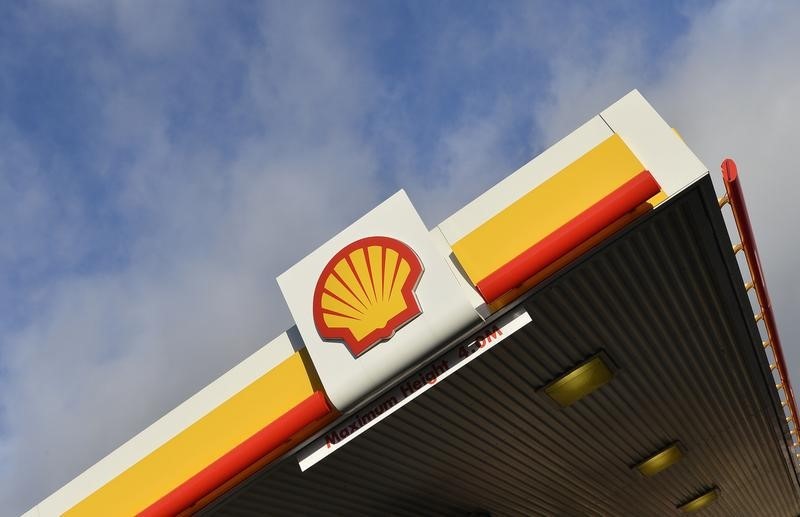By Karolin Schaps and Ron Bousso
LONDON (Reuters) - Royal Dutch Shell (L:RDSa), Europe's largest oil company, reported its lowest annual income in over a decade on Thursday and said it would take further steps to cut costs to cope with weak oil prices if needed.
Shell, whose shareholders last week approved its takeover of rival BG Group (L:BG), said 2015 income fell 87 percent to $1.94 billion, in line with analysts' estimates, as its oil and gas production unit took a big hit from slumping oil prices.
Shares in Shell, which offer a dividend yield of above 8 percent, were trading up 6.4 percent at 5.36 a.m. ET, outperforming the European oil and gas company index which was up 3.4 percent.
"Most divisions came in towards the top end of management's guidance range, which we view as positive," said Biraj Borkhataria, equity analyst at RBC Capital Markets.
Shell's earnings are the latest demonstration of how badly oil producers are suffering from a 75 percent fall in oil prices since mid-2014. The world's largest oil company, ExxonMobil (N:XOM), this week reported its smallest quarterly profit in more than a decade, while BP's 2015 loss was its biggest ever.
Norway's Statoil said on Thursday it would cut 2016 capital expenditure (capex) by $1.7 billion year on year, while U.S. producer ConocoPhilips reduced its quarterly dividend.
"Shell will take further impactful decisions to manage through the oil price downturn, should conditions warrant that," Chief Executive Ben van Beurden said in a statement. Shell maintained its annual dividend payment of $1.88 per share.
Shell is reducing investment, cutting nearly 10,000 jobs and selling assets to cope with the downturn. The CEO told reporters he believed oil prices had reached, or were near, the bottom of the cycle, pointing to growing demand.
In order to lower spending, Shell has scrapped multi-billion pound projects over the past year, including a controversial exploration project in the Alaskan Arctic Sea, the Bab sour gas field in Abu Dhabi and Carmon Creek oil sands project in Canada.
The company approved only four new projects last year and investment decisions are expected to remain scarce in 2016.
This strategy has started to drag down Shell's reserve replacement ratio, a metric used to reflect new reserves added relative to the amount produced, which was negative in 2015 for the first time in around 12 years.
"While we're not entirely comfortable with a negative number, it's not the most important thing today," Shell Chief Financial Officer Simon Henry told reporters.
He said the additions of BG's reserves once the takeover completes would help.
Shell maintained its $33 billion combined Shell-BG capital expenditure budget for 2016. Capital spending fell to $28.9 billion in 2015, down $8.4 billion year on year.
Shell's fourth-quarter current cost of supplies (CCS)earnings excluding identified items, its preferred way of measuring profits, fell 44 percent to $1.83 billion. Its downstream business benefited from lower fuel prices, contributing a profit of $1.5 billion in the fourth quarter.
Shell sold $5.5 billion worth of assets in 2015, it said.
